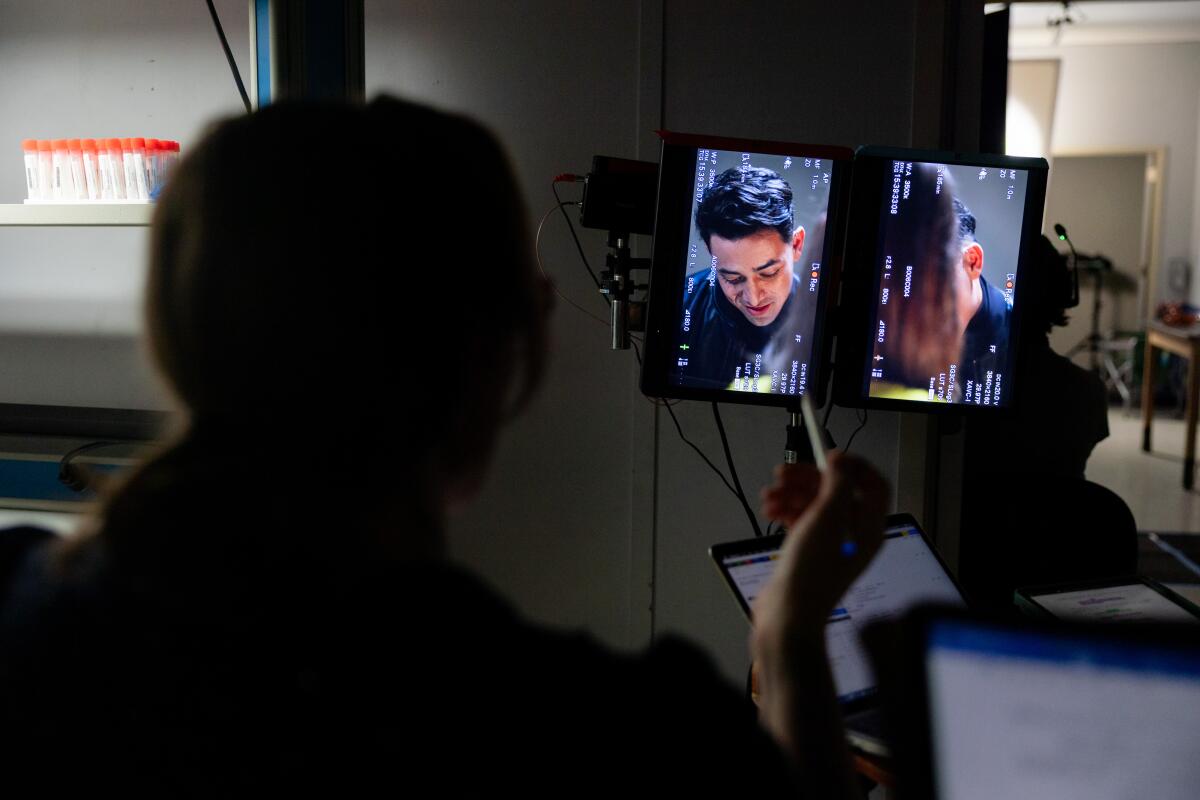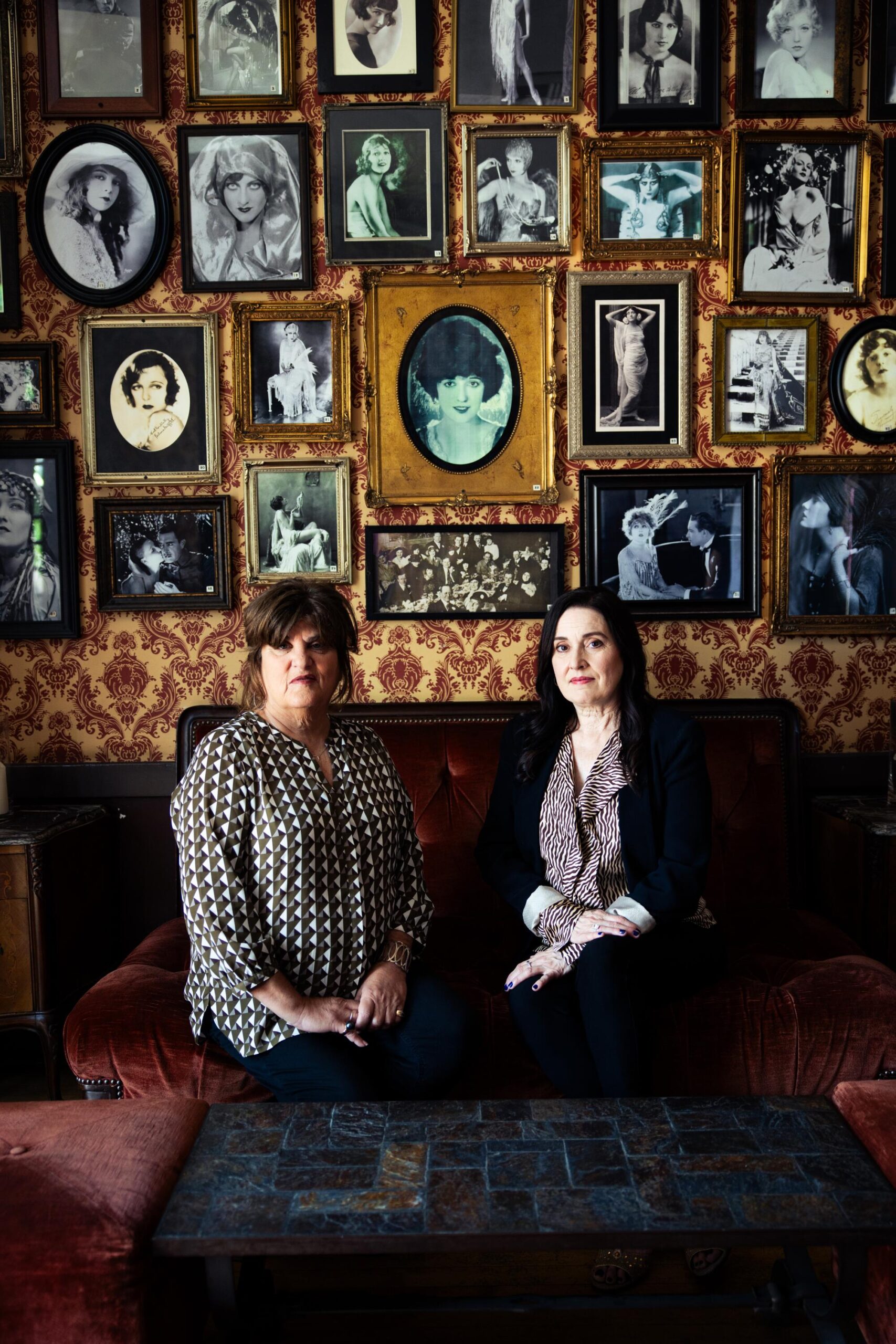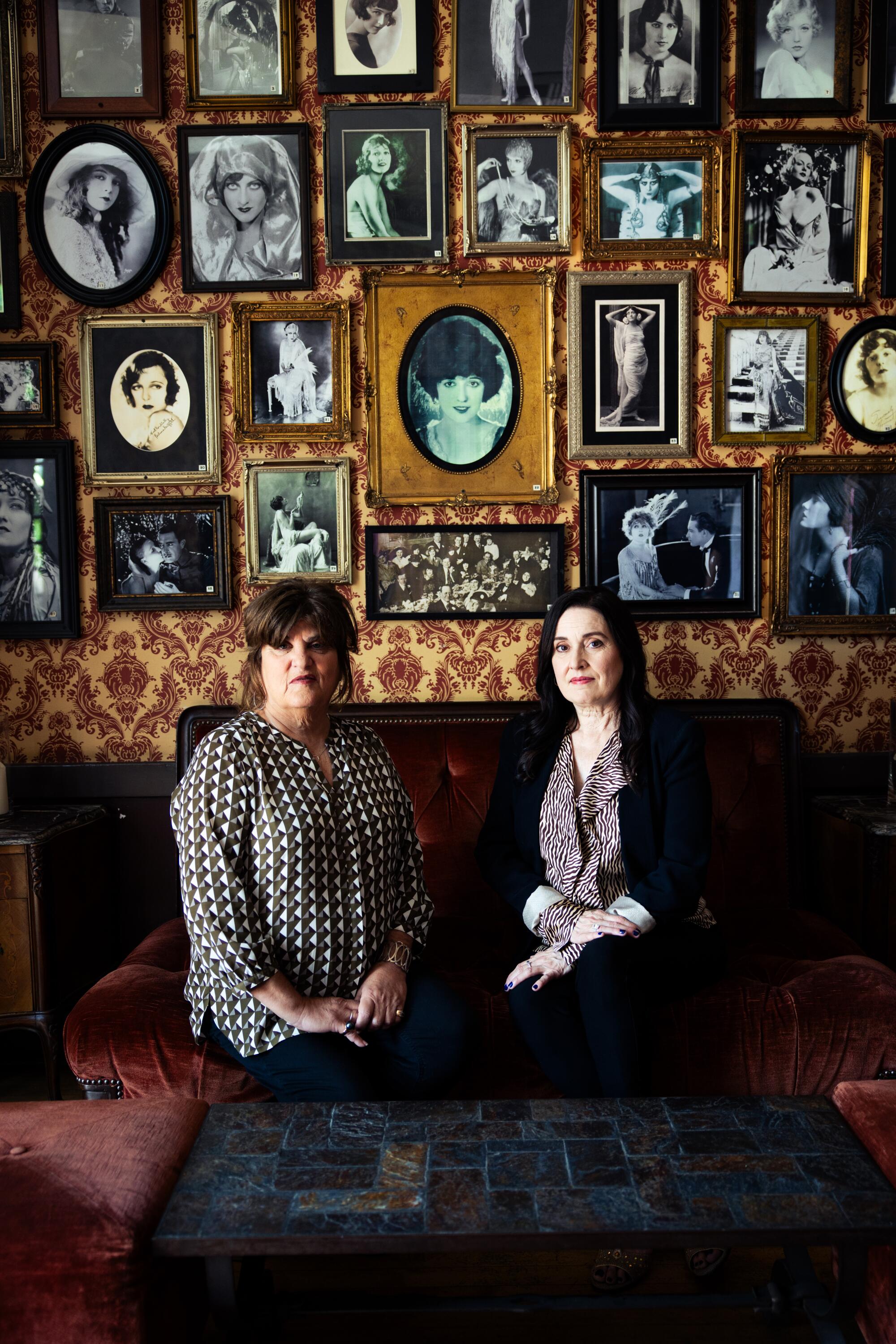Hollywood’s romance with micro dramas is heating up. Will it last?
SUNNYVALE, Calif. — A young woman is desperate to raise $50,000 for her mom’s life-saving medical treatment. She will get the money, but only if she agrees to her stepsister’s unusual proposal: to marry her wayward fiance, who comes from a wealthy family but also has a rap sheet.
That’s the plot line for an episode of “The Double Life of My Billionaire Husband.”
That may sound like a telenovela. In fact, it’s a popular series that appears on ReelShort, an app where audiences can view on their smartphones over-the-top, dramatic tales reminiscent of soap operas called micro dramas.
Unlike a regular TV show, this drama unfolds over 60 episodes, each lasting one to three minutes. After six episodes, viewers hit the paywall, where they could continue watching ad-free with a $20 weekly subscription, watch ads or pay as they go.
Already, the series has garnered more than 494 million views since it launched in 2022 and ReelShort says it has made more than $4 million from the show.
With titles like “The Billionaire Sex Addict and His Therapist,” “How to Tame a Silver Fox” and “Pregnant by My Ex’s Dad,” micro dramas lean heavily into sensationalism and light on budgets, which are typically less than $300,000 per series. And many of them are filmed in Los Angeles.
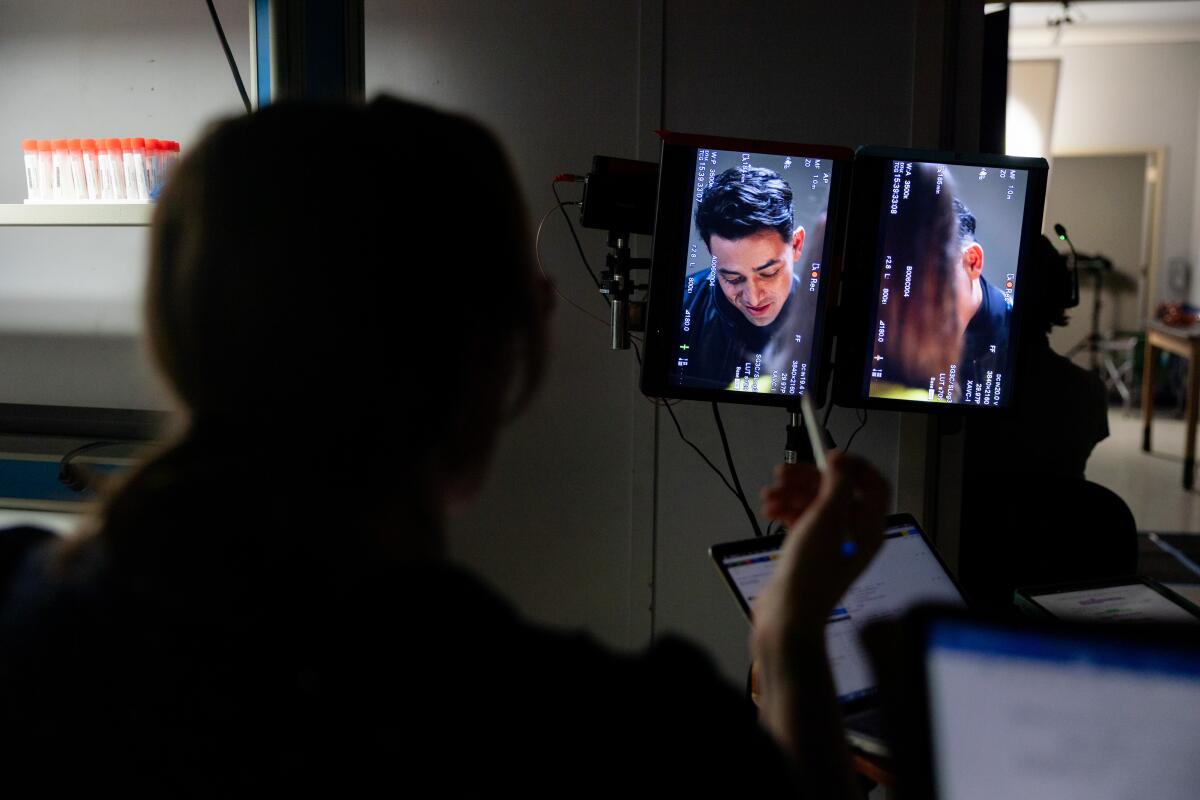
Director and co-writer Cate Fogarty watches actor Diego Escobar on dual vertical monitors. The film, by platform DramaShorts, is shot vertically to be adapted for viewing on a phone screen.
(Juliana Yamada/Los Angeles Times)
Short serialized dramas first took off in China, where they are hugely popular and generated revenues of $6.9 billion last year, even surpassing domestic box office sales, according to DataEye, a Shenzhen-based digital research firm.
Now, Hollywood is starting to take note of the bite-sized format.
In August, the venture arm for Lloyd Braun — the former ABC executive and chairman of talent agency WME — and L.A.-based entertainment studio Cineverse formed a joint venture called MicroCo to build a platform for micro dramas.
“Traditional Hollywood moved away from a whole genre and storytelling that fans love, and I think micro dramas really took advantage of that and really leaned into that fandom,” said Susan Rovner, chief content officer of MicroCo.
Studio interest
Major studios are investing in micro dramas in an attempt to replicate China’s success and find new ways to appeal to younger audiences that are accustomed to watching short-form videos on TikTok, YouTube, Instagram and other platforms while on the go.
Fox Entertainment recently announced an equity stake in Ukraine-based Holywater, a producer of micro dramas. Under the deal, Fox Entertainment Studios (a division of Fox Entertainment) will produce more than 200 vertical video titles over the next two years for Holywater.
And Walt Disney Co.’s accelerator program, which invests in startups, recently named micro drama business DramaBox, whose parent company is based in Singapore, as part of its 2025 class.
David Min, Walt Disney Co.’s vice president of innovation, said he believes micro dramas will continue to do well, especially with younger audiences accustomed to watching entertainment on their phones.
“We have to be where everyone is consuming their content, so that’s an opportunity for us,” Min said in an interview. “…This is just another new platform to experiment with and explore and see if it’s right for the company.”
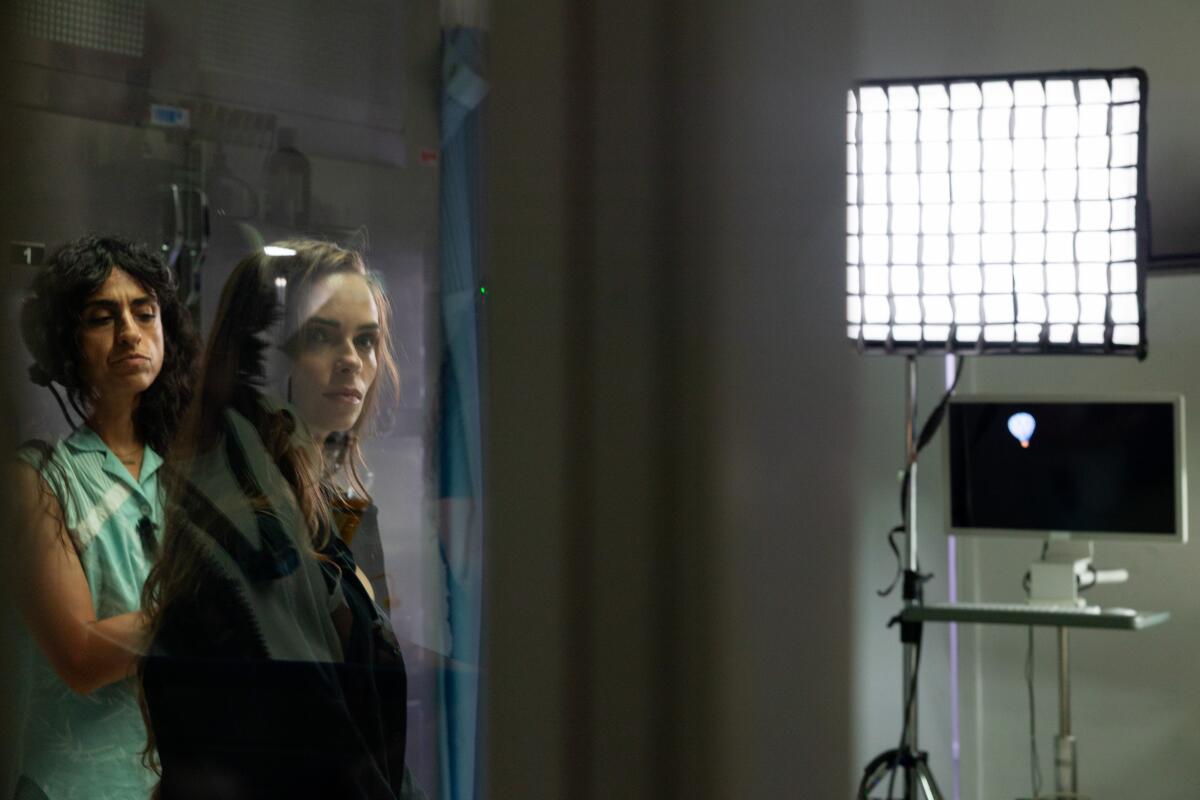
First assistant director Chakameh Marandi, left, and actress Leah Eckardt wait during filming at Heritage Props last month in Burbank.
(Juliana Yamada/Los Angeles Times)
This year, ReelShort, which is based in Sunnyvale, Calif., says it will produce more than 400 shows, up from 150 last year.
All of the productions are filmed in the U.S. and mostly in Los Angeles, said ReelShort CEO Joey Jia in an interview. The company plans to build a studio in Culver City that will adapt its most popular micro dramas into films.
“We offer a lot of opportunity,” Jia said.
Warsaw-based DramaShorts said in 2026 it aims to shoot 120 micro drama projects in the U.S., up from 45 to 50 this year. About 25% of those will be in the L.A. area.
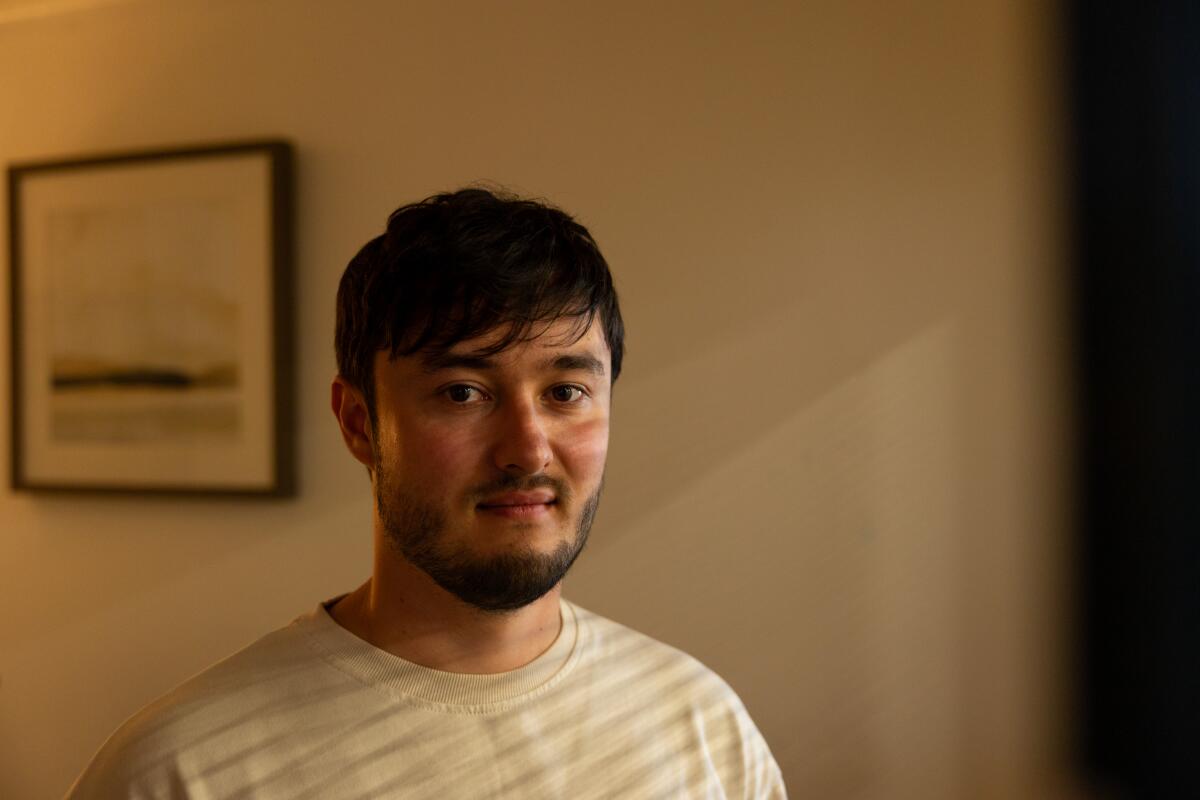
DramaShorts co-founder Leo Ovdiienko says, “People are so used to consume content through social media, through TikTok, through Instagram, through Facebook and to share information.” .
(Juliana Yamada/Los Angeles Times)
“People are so used to consume content through social media, through TikTok, through Instagram, through Facebook and to share information,” said DramaShorts co-founder and Chief Operating Officer Leo Ovdiienko, 29, in an interview. “I believe it’s only a matter of time before the big players will also come to this stage.”
The company works with production partners in L.A. who employ actors, writers and crew members who work on the quick-turn projects, a bright spot in a struggling job market.
“The plus side of filming in L.A. is it is the epicenter of Hollywood,” said executive producer, writer and director Chrissie De Guzman, who has worked on DramaShorts projects. “We know how the state of our industry is doing right now, so a lot of talent have moved into the vertical space.”
Though vertical dramas are the length of a movie, they are spliced up into small chapters and produced quickly. A 100-page script might be shot in just one week as opposed to a month for a feature film.
Each chapter usually features a cliffhanger or dramatic moment — whether that’s a slap or a character in danger.
“It just hits every little emotional point,” said Caroline Ingeborn, chief operating officer at Palo Alto-based Luma AI, which provides micro drama companies with AI tools. “It hooks you in like this and because it’s so easy to press [Play]. You just need to see the next episode.”
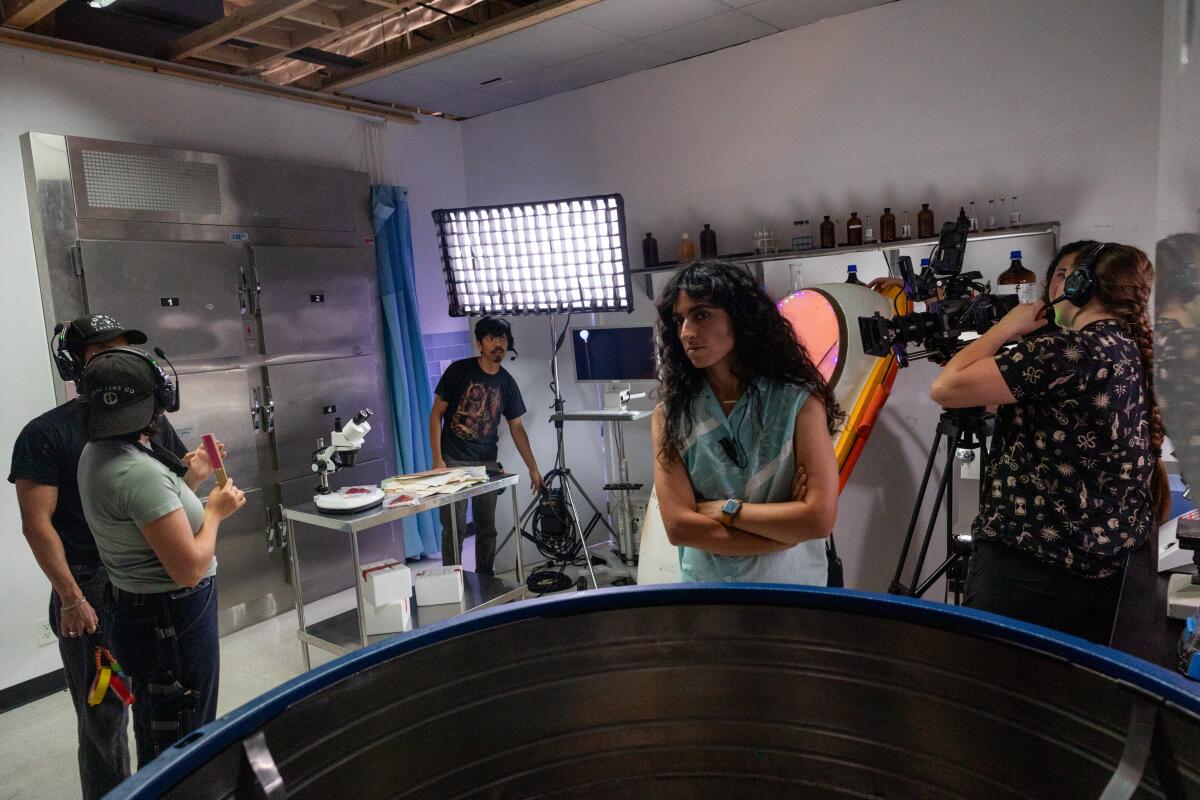
The crew of vertical film “Sleeping Princess” break between scenes.
(Juliana Yamada/Los Angeles Times)
Labor tensions
With ultra-low budgets, many of the productions are non-union, prompting some writers and actors to work under pseudonyms to avoid facing sanctions from their unions, said several people who work on the shows.
In an effort to address the issue, performers union SAG-AFTRA recently announced it has created agreements that cover low-budget vertical dramas.
Writers Guild of America West President Michele Mulroney said in an interview the union is aware that “there are companies that are trying to do this work non-union, so the guild wants to help our members … in ways that they can work on verticals and make sure they get that work covered.”
Micro drama producers said they welcome talking with the unions, but questioned whether their business models could support union contracts.
“We’re not anti-union at all,” said Erik Heintz, executive producer at Snow Story Productions, which makes vertical dramas for platforms including DramaShorts.
Despite labor tensions, these short-form dramas have provided a key source of employment for Hollywood workers who’ve struggled to find jobs as production has moved out of California.
Corey Gibbons, 44, a director of photography, said vertical dramas kept him in the business when other work dried up.
“I have a feeling that we’re on the brink of something that’s really going to change,” Gibbons said. “I’m just excited to be a part of it.”
So was 27-year-old actor Sam Nejad, a former contestant on “The Bachelorette” who started acting in vertical dramas in January. He said he’s landed one or two lead roles a month since then and can earn $10,000 a week.
“It’s a new art,” Nejad said. “The new Tarantinos, the new Scorseses are all coming through this.”
ReelShort’s office in Sunnyvale looks more like a typical Silicon Valley startup than a Hollywood studio.
Jia, the chief executive, sits at a desk in an open floor seating area with his staff. Along the office walls are framed posters with titles like “Prince With Benefits,” “Never Divorce a Secret Billionaire Heiress” and “All the Wrong Reasons.” Jia proudly points out why each program was notable on a recent tour of the space.
“I don’t have money to hire celebrities,” Jia said. “I have 100% rely on story.”
The 46-year-old entrepreneur, who has an electrical engineering background, launched his business in 2022. At the time, there wasn’t much interest from Hollywood studios.
The skepticism followed the high-profile collapse of Quibi, the startup led by studio mogul Jeffrey Katzenberg and tech executive Meg Whitman, that worked with A-list movie stars on series that would appear on an app in short chapters. Quibi raised $1.75 billion, only to shut down roughly six months after launching.
Jia took a different approach. Rather than signing expensive deals with celebrities, he hired students or recent graduates from colleges like USC to work at his company.
Jia approves all of the micro drama stories at ReelShort, which he says is expected to generate $1 billion in revenue this year.
A ReelShort representative declined to disclose the company’s earnings but said the business is profitable.
Jia said ReelShort has 70 million monthly active users, with 10% of them paid users.
The churn — the rate at which customers drop weekly subscriptions — can be more than 50% at ReelShort, Jia said. That makes it paramount for the company to have a steady stream of content that entices customers to keep paying. Currently it has more than 400 in-house titles and roughly 1,000 licensed titles.
Like others in the genre, ReelShort and DramaShorts rely heavily on data metrics like customer retention and paid subscribers to make their content decisions.
“A lot of directors are thinking, when I shoot the film, ‘I don’t care how people think, this is my creation, it’s my story,’” Jia said. “No, it’s not your story. Your success… should be determined by the people.”
